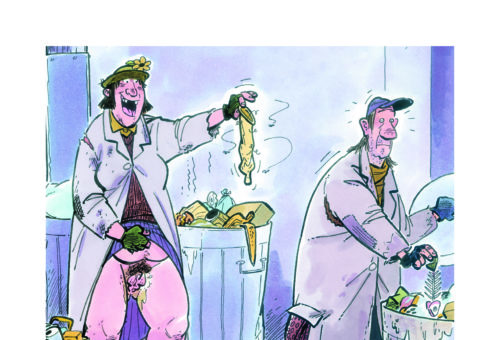Utter the words net neutrality, and you risk inducing a stupor equal to saying, “Let’s talk particle physics!” A majority of Americans think net neutrality is a good thing. In fact, before it was rescinded in December, 83% of those polled were against the repeal, including three out of four Republicans. But many of us are kind of vague on the geeky details. Here’s the essential thing to know: What the Bill of Rights was to the American Revolution, net neutrality is—or was—to the ongoing Digital Revolution. The freewheeling internet is nothing less than the evolving brain and nervous system of our new global civilization, increasingly connected by international cables, phone lines, satellites and wireless transmitters. Whether you call it the Information Age or the Digital Age, it’s every bit as revolutionary as the Industrial Age.
We are still in the early stages of this revolution, and Donald Trump has just tossed a bucket of wrenches into the works. Repealing net neutrality may not be the most malicious or poisonous thing he’s done, but it’s easily the most ignorant and stupid, because not only does it roll back the extension of democracy and free speech that the internet has enabled, it will also cripple free enterprise—the one thing that Trump supposedly holds sacred.
All of the pioneering internet websites that we take for granted today—Google, Amazon, YouTube, Facebook, Twitter, Reddit, Craigslist, etc.—got off the ground precisely because access and traffic over the internet were open equally to all players, including start-ups operating out of a garage, without restriction. Nobody was blocked or “throttled” down if they offered a new search engine, blog, social medium or news service better than what was already out there. That’s how a little start-up named Google eventually triumphed over Infoseek and some of the other big, dominant search engines of the time. And why nobody uses Grolier’s online encyclopedia anymore—Wikipedia could load results as fast as Grolier’s or the old Encyclopedia Britannica online, and it proved to be more authoritative and thorough, with editing open to the public.
Beyond enabling innovation in all fields of communication, science, medicine and commerce, the open internet has revolutionized information sharing, opening the door to citizen journalists and activists of all persuasions. Anybody with a blog or Twitter account can publicize events and opinions overlooked or suppressed by a mainstream media increasingly concentrated and compromised. Uploaded citizen videos of police brutality, hacked emails and viral media campaigns have given powerful new voices to marginalized communities, exposed hidden corruption and spurred long overdue political change. Now this radical extension of democracy, free speech and free enterprise is threatened by the usual suspects: greedy corporations merging into monopolistic monsters, abetted by their colluding, lobby-owned agents in government.































